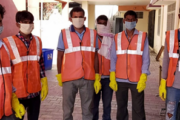Support Beyond Sympathy: Eknath Shinde’s Commitment to Families of Terror Victims
Published: Based on reporting from The Times of India
Introduction: A Ray of Hope for Families Affected by Tragedy
In the wake of acts of terror that continue to haunt different parts of India, the personal losses of affected families often go unaddressed. Recently, a significant development emerged when Maharashtra Deputy Chief Minister Eknath Shinde took a concrete step toward providing meaningful support. Following the tragic deaths of three individuals from Dombivli in a terror attack during their visit to Pahalgam in Jammu and Kashmir, Shinde personally visited their families and extended promises of assistance in education and employment.
For Indians currently navigating the tough job market, this move symbolizes more than just governmental outreach. It reflects a potential model for structured state involvement in emotionally and economically rehabilitating terrorist attack victims’ families. In this blog post, we unpack the key details of the initiative, analyze its implications, and explore what unemployed Indians can take away from this policy gesture.
Key Highlights from the Official Visit
During the recent visit to the victims’ families in Dombivli, Deputy CM Eknath Shinde outlined specific measures his government would undertake. The effort was not just symbolic—it included promises with direct socio-economic implications.
- Employment Support: Shinde assured that one member from each victim’s family would be assisted in securing a government job.
- Educational Aid: Children of the deceased will receive financial support for continued education, including access to higher education if needed.
- Emotional and Administrative Assistance: Local officials have been directed to stay in direct contact with the affected families to help them access the promised support smoothly.
This approach shows that beyond ex-gratia payments and ceremonial homage, the state is now acknowledging the long-term needs of terror-affected families.
Source: Times of India
Expanded Context from Additional Reporting
According to a follow-up analysis published by the Indian Express, such support from state governments typically meets administrative delays or legal bottlenecks. However, in this instance, Shinde’s office has fast-tracked the internal processing to ensure benefits reach the beneficiaries promptly. While there’s no legal obligation on behalf of the government to extend such support in events like these, it nonetheless sets a precedent for intervention in civically traumatizing situations.
Experts in social policy have also pointed out that events like these must spark a broader discourse on nationwide policy frameworks. Currently, India lacks a standardized federally managed support system for terror-affected individuals, which often leads states to create piecemeal responses that vary widely in quality and effectiveness.
India-Specific Analysis: Why This Matters Now
India’s job market remains under tremendous strain. According to CMIE’s April 2024 data, India’s urban unemployment rate hovered around 7.9%, with youth unemployment rates even higher. For individuals already struggling with familial responsibility or belonging to affected communities, employment support can serve as a vital safety net.
This intervention by the Maharashtra government also demonstrates a governance model where human welfare integrates with responsive state behavior. Notably, the state departmental collaboration with local municipalities, education boards, and job placement cells is becoming increasingly crucial in delivering post-tragedy aid.
Furthermore, in a country where many job seekers lack access to even the most basic support structures, especially after traumatic incidents, such government action can instill not only hope but also a measurable pathway forward.
Implications for Policy Innovation
- State-led interventions can complement central policies on rehabilitation.
- Such cases offer a pilot model for building future frameworks on victim compensation and support.
- Social integration through jobs often leads to long-term resilience among affected families.
Practical Takeaways for Job Seekers in India
For Indians currently looking for jobs or career stability, this case provides several important lessons and considerations:
- Register Nationally and Locally: Ensure you’re registered with both local employment exchanges and national job portals like NCS (National Career Service).
- Explore Government Schemes: Whether or not directly impacted by tragedy, India offers diverse central and state-run employment and education support schemes (e.g., PMKVY, Skill India Mission).
- Stay Informed: Follow both news portals and official state government websites. Opportunities like these are often accessible to a broader group under welfare clauses.
- Engage with Local MLAs or District Authorities: In many cases, local representatives can facilitate contacts with support programs in the wake of crises or urgent needs.
Conclusion & Summary Points
Deputy CM Eknath Shinde’s personal outreach to the families of terror victims in Dombivli has revealed a more compassionate and actionable side of governance. From ensuring jobs to prioritizing education for victim families, the initiative is not just about sympathy—it’s about constructing a framework of dignity, empowerment, and future-readiness.
This case signifies an opportunity for policymaking that is both humane and strategic, especially relevant in today’s volatile socio-political climate. Job seekers in India can use the occasion to understand the importance of civic engagement, policy literacy, and how state support, even if rare, can be timely and transformative.
Quick Summary:
- Three citizens from Dombivli were killed in a terror attack in Kashmir; their families will now receive state support.
- Government promises include employment for a family member, education support, and administrative aid.
- This case could set a model for victim family rehabilitation policies in other Indian states.
- Job seekers should stay updated on government schemes and leverage local governance for access to support.
Source: The Times of India
Call to Action
Are you or someone you know looking for employment or educational support? Explore your local government schemes and stay connected with updates that could shape your future. For more stories like this, subscribe to our blog, or reach out for further assistance. Stay informed, stay prepared.


